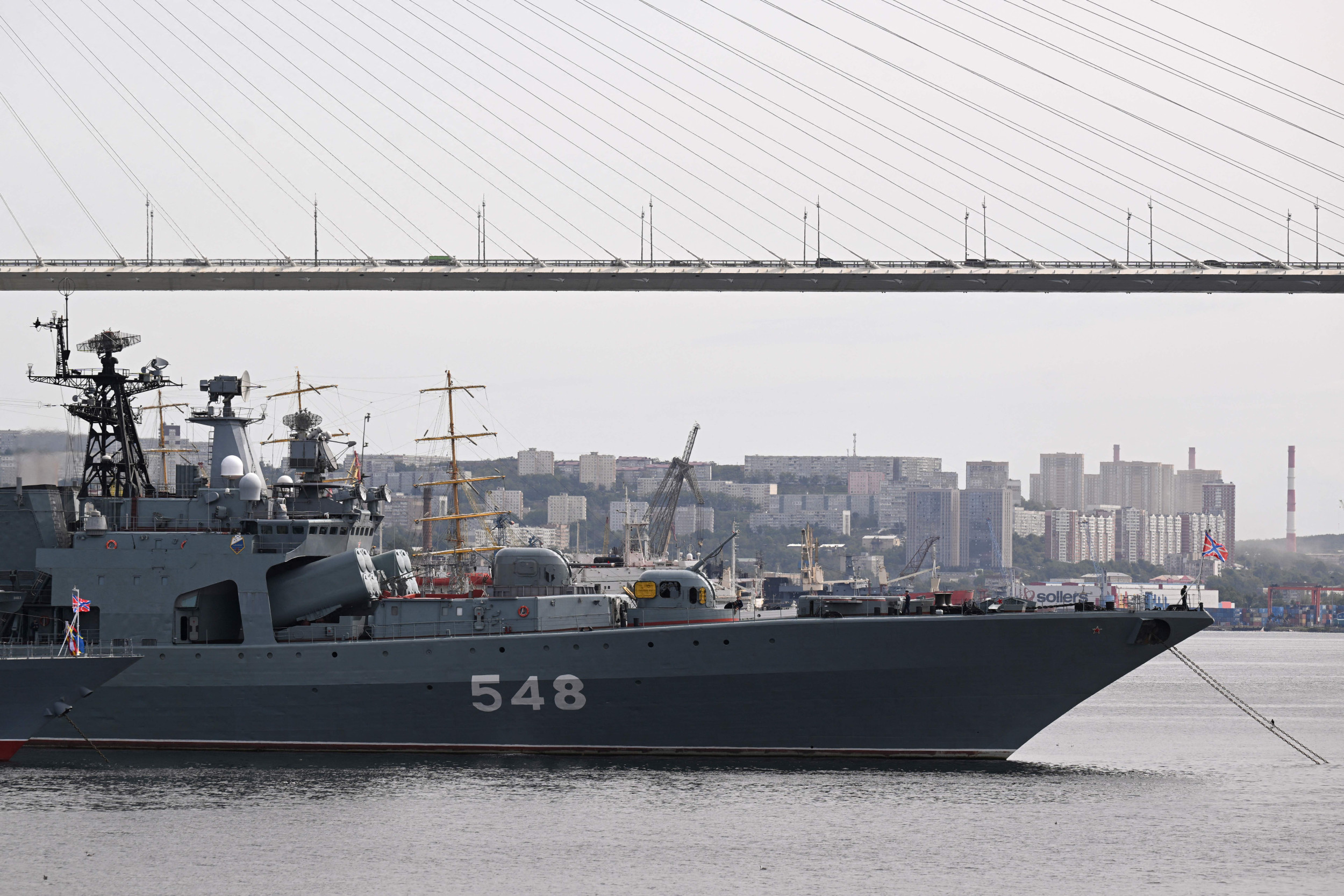There is a growing consensus that China, Russia, North Korea, and Iran are aligning into a modern Tripartite Pact, prompting calls for the United States to formulate a grand strategy aimed at thwarting this perceived Eurasian coalition.
This emerging narrative about a "desperate alignment" between Beijing, Moscow, Pyongyang, and Teheran is bolstered by recent examples of cooperation. Iranian military leaders want to portray the recent maritime exercise in the northern Indian Ocean, dubbed the "Maritime Security Belt" by China, Russia, and Iran as a budding alignment. Meanwhile, North Korea sent a high-level economic delegation to Iran, and has made efforts to strengthen ties with countries opposing the U.S. Beijing is accused of providing Moscow with an economic and technological lifeline to help it evade U.S. sanctions, and it—along with North Korea and Iran—is also supplying weapons to Russia.
While there may be ideological and strategic bases for the close ties between Beijing, Moscow, Pyongyang, and Tehran—such as opposing the U.S.-led order and ejecting Washington from their perceived spheres of influence—there is less evidence that these countries can build a cohesive alternative global order or are even capable of carrying out complex coordinated military operations, at least for now.
The primary challenge for a potential alliance between China, Russia, North Korea, and Iran lies in the role of India. While Russia, North Korea, and Iran see India as an integral power essential for countering U.S. influence across Eurasia, China, the dominant player among the four, views Delhi as a competitor in South Asia and the Indo-Pacific. Additionally, India could potentially pose a second-front problem for Beijing in the event of a Taiwan invasion, although evidence for this possibility is limited. Moscow, Tehran, and Delhi are all acutely aware that, without India's involvement, the feasibility of an anti-American Eurasian alliance is compromised.
While ties with China and Russia may help alleviate the isolation of North Korea and Iran, the implications of labeling such ties an "alliance" or "axis" and triggering a large-scale U.S. response are significant. It could lead to a strain on American resources and damage relations with key pivotal states such as India, Turkey, and Saudi Arabia. To keep from inadvertently fostering greater cohesion among China, Russia, North Korea, and Iran, Washington and its foreign policy intelligentsia must adopt a divide-and-conquer approach, competing with each country within specific regions and on specific issues. Treating them as a unified coalition could prompt them to act as one.

Today, the United States finds allies in the United Kingdom, Japan, Australia, and several European countries forming a bulwark against what it increasingly views as the Russia-China axis. However, this alliance dynamic confronts the profound challenge of pivotal states like India, Saudi Arabia, Indonesia, and Turkey, which increasingly resist the notion of merging Europe and the Indo-Pacific into a unified geopolitical stage. This resistance stems from their strategic interests in maintaining flexibility and autonomy. More importantly, their alignment with Washington is focused on certain regions but not others, and clearly not the whole world.
In the case of India, Delhi is increasingly concerned about China and its ambitions in the Indian Ocean. India is open to alignment with Washington, which prioritizes balancing power in the Indo-Pacific—a point of convergence between India, the United States, Japan, and Australia based on their national interests. However, Delhi has made it clear that these partnerships should not become a full alliance that extends its focus beyond the Indo-Pacific. This stance was evident when India abstained from UN resolutions condemning the Russian invasion of Ukraine due to the importance of Russian military equipment and energy.
Alignment with the United States on competition with only one of China, Russia, North Korea, or Iran is not limited to India. In the Middle East, as the security situation deteriorates, Saudi Arabia is keen to work with the United States and Israel on containing the Iranian threat. However, as a major energy exporter to China and an important partner to Russia in setting global energy policy, Saudi Arabia finds less incentive to transform its prospective defense pact with the United States into a comprehensive alliance. It rejects any alliance that would require reducing energy prices to hurt the Russian economy or restrict energy supplies to China in case of a Chinese invasion of Taiwan.
John Quincy Adams once famously remarked that America "goes not abroad in search of monsters to destroy." The close ties between China, Russia, North Korea, and Iran are undeniable and demonstrably affect the battlefield in Ukraine. They could even loosen the isolation of North Korea and Iran. But they don't constitute an alliance or a monolithic threat.
As the center of economic and geopolitical power shifts to the Indo-Pacific, America might not have the necessary resources or partners who would share the burden of a universal containment strategy against a unified Eurasian coalition encompassing China, Russia, North Korea, and Iran. In response to this emerging power structure in Eurasia, the United States should adjust its already strained strategic posture. Emulating Great Britain's offshore balancer strategy during the Napoleonic Wars, the United States could pursue issue-based and geographically focused competition with China, Russia, North Korea, and Iran. Such an approach not only sets clear guardrails around competition but also fosters strategic collaboration with pivotal states like India, Saudi Arabia, Indonesia, and Turkey on specific aspects of global competition.
Mohammed Soliman is a director at the Middle East Institute, a member of McLarty Associates, and a visiting fellow at Third Way. On X: @ThisIsSoliman
The views expressed in this article are the writer's own.
Uncommon Knowledge
Newsweek is committed to challenging conventional wisdom and finding connections in the search for common ground.
Newsweek is committed to challenging conventional wisdom and finding connections in the search for common ground.





